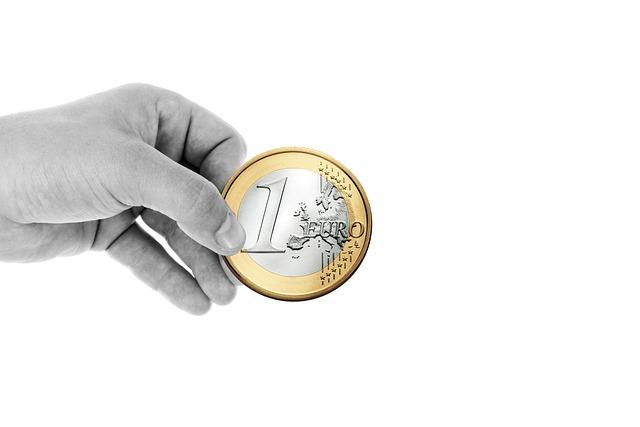Welcome to Finance 101: Easy Tips for newbies to Master Money Smarts! If you’ve ever felt overwhelmed by budgets, savings, or just figuring out where your money goes, you’re definately not alone. Managing finances might seem intimidating at first, but it doesn’t have to be rocket science. In this blog, we’re breaking down the basics into simple, easy-to-follow tips that anyone can use-no fancy jargon, no confusing charts, just real talk about making your money work for you. Whether you’re a total beginner or just need a refresher, stick around and let’s get those money smarts on point!
Getting Started with Budgeting That Actually Works
Starting with budgeting doesn’t have to feel like learning rocket science. The secret sauce is keeping it simple and practical. Begin by tracking where your money goes-yes, every coffee run and late-night snack counts. Once you have a grip on your spending habits, set realistic limits based on your income and priorities. Remember, the goal isn’t perfection but progress, so give yourself some wiggle room!
Here’s a quick checklist to kick things off:
- List monthly income: Know exactly how much you bring home after taxes.
- categorize expenses: Break down spending into essentials (rent, groceries) and treats (dining out, hobbies).
- Set savings goals: Even small amounts add up and build a safety net.
- Review and adjust: Make it a habit to revisit your budget every month.
| Category | budget % | Sample Amount |
|---|---|---|
| Rent/Mortgage | 30% | $900 |
| Food & Groceries | 15% | $450 |
| Savings | 20% | $600 |
| transportation | 10% | $300 |
| Entertainment & misc. | 10% | $300 |

Smart Ways to Save Without Feeling the Pinch
Saving money doesn’t have to feel like a chore or make you miss out on life’s little joys. Instead of slashing expenses wildly, try tweaking your daily habits in ways that add up without pain. For instance, swapping your daily coffee shop visit for a homemade brew can save you around $100 a month-enough for a small treat each weekend.Another easy win? automate your savings by setting up a direct transfer to a separate account right after payday. This way, you won’t even miss what you save, and the balance grows quietly in the background.
Small lifestyle changes make a big difference when you’re consistent. Here are some painless money-saving hacks worth trying:
- Use cashback apps on everyday purchases like groceries or online shopping.
- Meal prep to cut down on dining out and reduce food waste.
- Unsubscribe from marketing emails that tempt you to buy on impulse.
- Switch to energy-efficient bulbs and appliances to lower your utility bills.
| Smart Saving Tip | Monthly Savings | Effort Level |
|---|---|---|
| Homebrewed Coffee | $100 | Low |
| Automated Savings Transfer | $150 | Low |
| cashback Apps | $30 | Low |
| Meal Prepping | $80 | Medium |

Decoding Credit Scores and Why They Matter to You
Your credit score is more than just a number-it’s a snapshot of how you manage money and debts over time. Lenders,landlords,and even some employers peek at this score to gauge your financial reliability. think of it as your financial reputation, influencing everything from the interest rates you pay on loans to the security deposit for your apartment. Understanding what builds or breaks your credit can empower you to make smarter choices that boost your score and open doors to better financial opportunities.
Let’s break down the main factors that shape your credit score:
- Payment History: Paying bills on time is the single most crucial factor.
- Credit Utilization: Aim to use less than 30% of your available credit.
- Length of Credit History: The longer, the better – it shows you’ve handled credit responsibly over time.
- Types of Credit: A mix of credit types, like credit cards and loans, can positively impact your score.
- Recent Inquiries: Too many credit checks in a short time can ding your score.
Here’s a quick glance at how each factor typically contributes to your overall score:
| Factor | Impact (%) | What It Means |
|---|---|---|
| Payment History | 35% | On-time payments versus missed or late payments |
| Credit Utilization | 30% | Ratio of credit used to total available credit |
| Length of Credit History | 15% | How long your accounts have been active |
| Credit Mix | 10% | Variety of credit accounts |
| New Credit Inquiries | 10% | Number of recent credit applications |
Simple Investment Moves for Total Beginners
Jumping into the world of investing doesn’t have to be scary or complicated. Start small and keep it simple by focusing on a few key moves that anyone can do. First up, consider setting up an automatic monthly investment. this could be as little as $50 or $100, but the real magic is in consistency over time. Whether you’re putting this into a low-cost index fund or a beginner-friendly robo-advisor, automating your contributions takes the emotion out of investing and helps build wealth without the hassle.Plus, you’ll benefit from something called dollar-cost averaging, which means buying more shares when prices are low and fewer when they’re high – a smart way to smooth out market ups and downs.
another smart move is to diversify without the headache. You don’t need to pick individual stocks or bonds unless you want to, but spreading your money across different types of assets keeps your risk balanced. Here’s a quick cheat sheet of broad investment categories to consider:
- Stocks: Ownership in companies with growth potential
- Bonds: Loans to governments or companies with steady returns
- Real Estate Funds: Access to property markets without buying a house
- Cash or cash Equivalents: Safe and liquid, but with low returns
| Investment Type | Risk Level | Ideal For |
|---|---|---|
| Index Funds | low to Medium | Long-term beginners |
| Individual Stocks | High | Confident, willing to research |
| Bonds | Low | Conservative investors |
| Real Estate Funds | Medium | Income with growth potential |
Avoiding common Money Mistakes Everyone Makes
When it comes to managing your money, slipping up is easier than you think. Many people fall into traps like impulse buying, ignoring budgets, or diving headfirst into credit card debt without fully understanding the consequences. These mistakes can silently sabotage your financial goals and keep you stuck in a cycle of constant catch-up. Instead of stressing over complex money rules, focus on simple habits like tracking where every dollar goes and setting realistic spending limits. Small tweaks in your daily routine can save you from those common pitfalls that drain your wallet without notice.
Here’s a quick checklist to keep you on track:
- Don’t skip an emergency fund: Unexpected expenses will come-be ready.
- Avoid minimum payments: Paying just the minimum on credit cards can cost you big in the long run.
- Say no to lifestyle inflation: Just because you earn more doesn’t mean you should spend more.
- Keep learning: Money management is a skill,not a mystery.
| Common Mistake | Quick Fix |
|---|---|
| Impulse Spending | Wait 24 hours before buying |
| Skipping Budgeting | Use a simple app to track expenses |
| Ignoring Debt | Create a payment plan ASAP |
| Overusing Credit Cards | Stick to debit or cash when possible |
Q&A
finance 101: Easy Tips for Newbies to Master Money smarts – Q&A
Q: I’m new to managing money-where should I even start?
A: Great question! Start with the basics: know how much money you’re bringing in and how much is going out. Track your income and expenses for a month using a simple app or even a notebook.Once you see where your money flows,it’s easier to make smart decisions.
Q: How can I budget without feeling restricted?
A: Think of budgeting as giving every dollar a job-it’s not about saying “no” all the time. Allocate some money for essentials like rent and food, some for savings, some for fun stuff. When you control where your money goes, you can still enjoy life without guilt.
Q: What’s a good rule of thumb for saving?
A: The classic “pay yourself first” rule is solid. Aim to save at least 20% of your income right when you get paid. If that feels tough, start smaller-saving something is better than nothing-and increase it gradually.
Q: Should I worry about credit cards?
A: Credit cards aren’t evil, but they can be sneaky. Use them wisely: pay the full balance each month to avoid interest, and don’t spend more than you can afford.Building good credit is super useful later on for things like loans or renting apartments.
Q: What about investing? Is it too complicated for beginners?
A: Not at all! You don’t need to be a Wall Street pro to start investing. Apps with low fees and simple options (like index funds) are perfect for newbies. Even a small amount invested consistently can grow over time thanks to compound interest.
Q: how do I avoid common money mistakes?
A: Some big no-nos: ignoring your budget, living paycheck to paycheck without saving, and racking up credit card debt. Also, don’t make major purchases on impulse. Take a step back, research, and ask yourself if you really need it.
Q: Any quick tips to boost my financial health today?
A: Sure thing! Automate your savings so you don’t have to think about it. Cut out one small recurring expense (like that pricey streaming service you barely use). And educate yourself-read articles, listen to podcasts, or watch videos on money management. Knowledge is power!
Q: How long does it take to get good at managing money?
A: Ther’s no set timeline, but consistency is key. The more you practise smart money habits, the easier it gets. Think of it like exercising your brain to build a money muscle-start now, and you’ll thank yourself later!
Got more questions? Drop them in the comments, and let’s chat about your money wins and woes!
insights and Conclusions
And there you have it-your no-fuss starter pack for getting smart with your money! Remember, mastering your finances isn’t about being perfect; it’s about making small, steady moves that add up over time. So take these easy tips, try them out, and don’t stress if you slip up now and then. Money smarts are a journey, not a race. Keep learning, stay curious, and watch your wallet thank you down the road. Happy budgeting!











